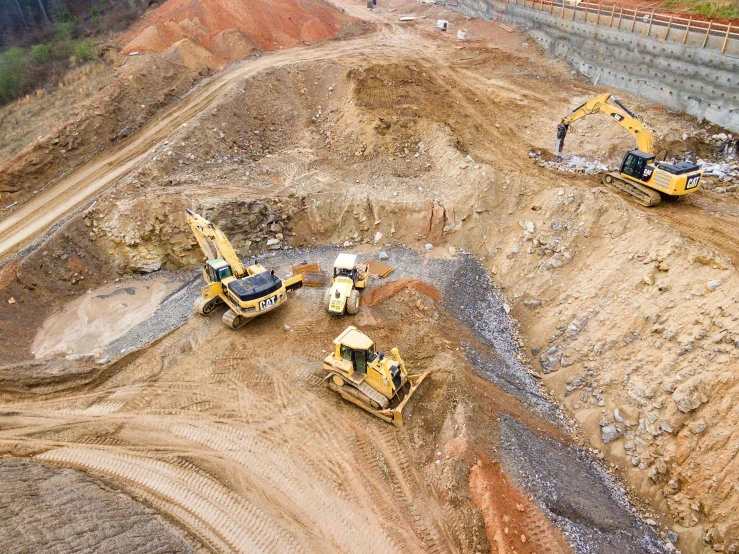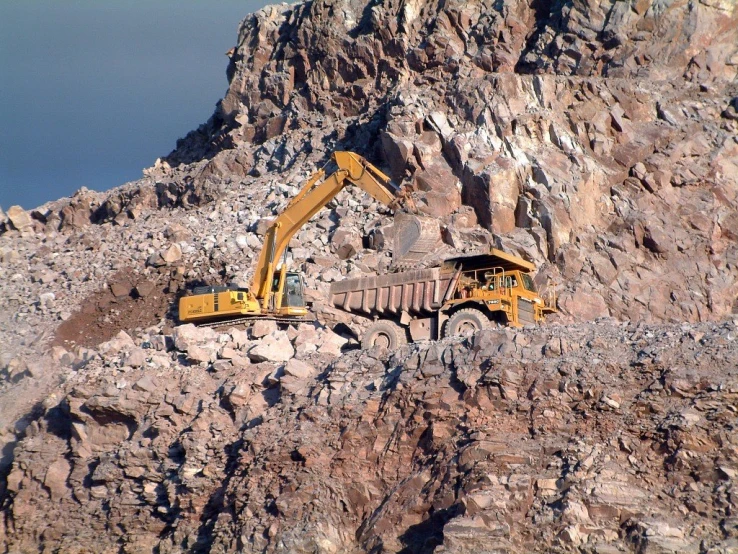1. Introduction
- Importance of Excavators in Quarries
Quarry excavators are key equipment for extracting and transporting stone, directly affecting production efficiency and safety. Choosing the right excavator is crucial for improving work efficiency and reducing operating costs. - Overview of the Article
This article discusses the key factors to consider when selecting a quarry excavator, including tonnage, steel plate material, hydraulic systems, safety, maintenance, and considerations for used equipment.
2. Tonnage Requirements
- Excavator Working Tonnage
Choosing an excavator with a tonnage of 30 tons or more is typically best for quarries to meet high-intensity extraction needs. Such tonnage can handle heavier materials and enhance production efficiency. - Relationship Between Tonnage and Work Type
Different work types have varying tonnage requirements. Larger tonnage is suitable for deep excavation and large-scale transport, increasing equipment stability and work efficiency.

3. Steel Plate Material
- Wear-Resistant Steel
Choose excavators made from high-strength wear-resistant steel to withstand wear from stone and ore, extending the equipment’s lifespan. - Structural Strength
The excavator’s frame and bucket should be constructed from high-quality steel plates to ensure stability under heavy loads and prevent structural damage. - Corrosion Resistance
Given the harsh environment of quarries, select equipment with corrosion-resistant treatments to withstand moisture and chemical exposure, ensuring reliability.
4. Hydraulic System Requirements
- Efficient Hydraulic System
Opt for excavators equipped with efficient hydraulic systems to support heavy-duty operations, improving digging efficiency and work speed. - Quality of Hydraulic Oil
Use high-quality hydraulic oil to ensure system stability under extreme conditions and reduce the risk of failure.
5. Operational Safety
- Anti-Tipping Design
Choose excavators with anti-tipping systems to ensure safe operation on uneven terrain and lower the likelihood of accidents. - Safety Alarm Systems
Equip the excavator with real-time monitoring and alarm systems to promptly warn of potential hazards, ensuring operator safety.

6. Maintenance and Care
- Easy Maintenance Design
Select equipment that allows for convenient daily maintenance, reducing downtime and improving operational efficiency. - Regular Inspection Plans
Establish regular inspection and maintenance schedules to ensure the normal operation of key components and prevent failures.
7. Considerations for Used Equipment
- Condition Assessment
When considering used excavators, thoroughly assess their condition, including wear and tear on critical components like the engine, hydraulic system, and undercarriage. - Maintenance History
Review the maintenance history of the equipment to ensure it has been properly cared for. A well-documented maintenance record can indicate reliability. - Cost vs. Value
Evaluate the cost of the used excavator relative to its remaining lifespan and performance capabilities. Sometimes, investing slightly more in a better-condition machine can yield better long-term savings. - Warranty and Support
Check if there are any warranties or support options available for used equipment, as this can provide additional assurance regarding its reliability.
8. Conclusion
- Summary of Key Points for Choosing a Quarry Excavator
Choosing the right tonnage, materials, hydraulic systems, safety features, maintenance factors, and considerations for used equipment is essential for ensuring efficient operation in quarries. - Future Prospects
With technological advancements, future excavators will become more intelligent, enhancing work efficiency and safety to meet the evolving demands of the quarry industry.
9. References
- Provide a list of relevant technical specifications, industry standards, and research literature for readers to gain deeper insights into how to choose the right quarry excavator.


